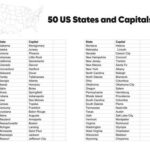
Aidan Hutchinson is betting on himself, choosing not to pursue a contract extension with the Detroit Lions this offseason and instead focusing on his performance in the upcoming season to potentially secure a more lucrative deal in the future. This high-stakes gamble underscores Hutchinson’s confidence in his abilities and his commitment to proving his worth on the field.
Detroit Lions defensive end Aidan Hutchinson is foregoing the security of a contract extension this offseason, opting to play out his current rookie deal with the aim of significantly increasing his value before negotiating a new contract. This decision, a calculated risk for the young star, reflects Hutchinson’s belief in his continued growth and potential to become one of the league’s premier defensive players.
Hutchinson, drafted second overall in the 2022 NFL Draft, has quickly become a cornerstone of the Lions’ defense. His rookie contract, a standard four-year deal for high draft picks, provides him with financial stability in the short term. However, the potential long-term financial rewards of a stellar performance in the coming seasons far outweigh the immediate security of an extension at this point in his career.
“He’s betting on himself,” observed several analysts, highlighting the boldness of Hutchinson’s strategy. By postponing contract negotiations, Hutchinson places significant pressure on himself to perform at an elite level. A standout season would substantially increase his bargaining power, potentially leading to a contract that reflects his status as a top-tier defensive end. Conversely, a disappointing season could diminish his value, impacting future contract offers.
The decision not to pursue an extension also reflects the changing landscape of NFL contracts. With the salary cap consistently rising, players often find that waiting for their rookie contracts to expire allows them to capitalize on the increased market value. Furthermore, demonstrating continued improvement and consistent performance can lead to more favorable contract terms.
Hutchinson’s agent reportedly advised him on the potential benefits and risks of both options – signing an extension now versus playing out his contract. Ultimately, the decision rested with Hutchinson, who expressed confidence in his abilities and a desire to prove his value to the team and the league.
The Lions organization, while potentially preferring to lock up a key player like Hutchinson early, understands and respects his decision. General Manager Brad Holmes has publicly stated the team’s commitment to building a competitive roster while also acknowledging the players’ right to make decisions that are in their best interests.
“We have a lot of respect for Aidan and his approach to the game,” Holmes stated in a recent press conference. “We believe he has a bright future with the Lions, and we will continue to work with him and his representatives.”
Hutchinson’s focus now shifts to the upcoming season, where he will be expected to lead the Lions’ defense. His performance will be closely scrutinized, not only by the Lions but also by other teams across the league. A strong showing will solidify his position as one of the NFL’s top defensive players and significantly enhance his future earning potential.
The Lions, meanwhile, are focused on building a Super Bowl-contending team. Hutchinson’s performance is critical to their success, and his decision to bet on himself adds an intriguing element to the team’s dynamics. His teammates and coaches have expressed support for his decision, recognizing his dedication and work ethic.
“Aidan is a true professional,” said Lions head coach Dan Campbell. “He is committed to improving every day, and we are confident that he will continue to be a valuable asset to our team.”
The outcome of Hutchinson’s gamble remains to be seen. However, his decision underscores his confidence, ambition, and unwavering commitment to achieving success in the NFL. It is a high-stakes bet that could potentially pay off handsomely, solidifying his legacy as one of the league’s premier defensive players.
Detailed Analysis
Aidan Hutchinson’s decision to forgo a contract extension with the Detroit Lions is a complex strategic maneuver, indicative of a growing trend among high-performing players in the NFL. Several factors contribute to this calculated risk, and understanding these nuances provides a deeper appreciation for Hutchinson’s rationale.
1. Rising NFL Salary Cap:
The NFL’s salary cap has consistently increased over the years, driven by lucrative television deals and increasing revenue streams. This upward trajectory significantly impacts player contracts, with each new deal potentially surpassing previous benchmarks. By waiting for his rookie contract to expire, Hutchinson positions himself to capitalize on a potentially higher salary cap in the coming years.
2. Performance-Based Valuation:
NFL contracts are heavily influenced by a player’s performance. A defensive end’s value is typically assessed based on factors such as sack numbers, tackles for loss, quarterback pressures, and overall impact on the team’s defensive performance. Hutchinson’s performance in the upcoming seasons will directly correlate with his potential earning power. A significant improvement in these key metrics could result in a substantially larger contract offer.
3. Market Dynamics:
The market for defensive ends is constantly evolving, with new players emerging and established veterans setting the bar for contract values. Hutchinson’s decision allows him to assess the market landscape closer to the expiration of his rookie contract. This provides him with a better understanding of his relative value compared to other players at his position.
4. Contract Structure and Guarantees:
NFL contracts are often complex, involving various clauses, bonuses, and guarantees. By waiting, Hutchinson can potentially negotiate a contract that is more favorable in terms of guaranteed money, which provides financial security regardless of performance or injury. He can also aim for a contract structure that aligns with his long-term financial goals.
5. Team Dynamics and Future Prospects:
The Detroit Lions are currently in a rebuilding phase, with a focus on acquiring young talent and developing a competitive roster. Hutchinson’s decision allows him to assess the team’s progress and future prospects before committing to a long-term contract. If the Lions demonstrate significant improvement and show promise of becoming a Super Bowl contender, Hutchinson may be more inclined to sign a long-term deal.
6. Risk Mitigation:
While foregoing an extension carries inherent risks, Hutchinson’s relatively young age and strong track record mitigate some of those concerns. He has already established himself as a valuable player, and his work ethic and commitment to improvement suggest that he is likely to continue to perform at a high level. Additionally, he has the financial security of his remaining rookie contract to provide a safety net.
7. Long-Term Financial Planning:
NFL players often have short careers, and maximizing their earning potential during that time is crucial for long-term financial security. Hutchinson’s decision is likely based on a comprehensive financial plan that takes into account his future goals and aspirations. By betting on himself, he is essentially investing in his own potential, with the expectation of a significant return on that investment.
The Lions’ Perspective
From the Detroit Lions’ perspective, Hutchinson’s decision presents both challenges and opportunities. Ideally, the team would prefer to lock up a key player like Hutchinson early, providing stability and continuity to the roster. However, they also understand the player’s right to make decisions that are in their best interests.
1. Roster Stability:
Securing a long-term contract with Hutchinson would provide the Lions with roster stability at a crucial position. This would allow them to focus on addressing other needs on the team without having to worry about potentially losing a valuable player to free agency.
2. Salary Cap Management:
The Lions have to carefully manage their salary cap to ensure they can afford to retain key players and attract new talent. Extending Hutchinson’s contract now could potentially provide more flexibility in the short term, as his salary would be spread out over a longer period.
3. Team Chemistry:
Having key players committed to the team long-term can contribute to a positive team culture and improve team chemistry. Hutchinson’s leadership and work ethic are valuable assets, and his presence on the team can have a positive impact on other players.
4. Negotiation Leverage:
Waiting for Hutchinson’s rookie contract to expire could potentially give him more leverage in negotiations. If he performs at an elite level, he could demand a higher salary than if he had signed an extension earlier.
5. Risk of Injury or Decline:
The Lions also face the risk that Hutchinson could suffer a serious injury or experience a decline in performance before his rookie contract expires. This could diminish his value and potentially impact the team’s ability to retain him.
6. Long-Term Planning:
The Lions have a long-term plan for building a Super Bowl-contending team. Hutchinson is a key part of that plan, and his decision to bet on himself adds an element of uncertainty to the team’s future.
Historical Context and Precedents
Aidan Hutchinson is not the first NFL player to bet on himself by playing out his rookie contract. Numerous other players have adopted this strategy, with varying degrees of success. Examining some historical precedents can provide valuable insights into the potential outcomes of Hutchinson’s decision.
1. Kirk Cousins:
Kirk Cousins, a quarterback drafted in the fourth round of the 2012 NFL Draft, famously played under the franchise tag twice before signing a fully guaranteed contract with the Minnesota Vikings. His decision to bet on himself ultimately paid off handsomely, as he secured one of the most lucrative contracts in NFL history at the time.
2. Dak Prescott:
Dak Prescott, another quarterback, faced a similar situation with the Dallas Cowboys. After playing under the franchise tag, he eventually signed a long-term contract that reflected his value to the team.
3. Von Miller:
Von Miller, a star pass rusher, played out his rookie contract with the Denver Broncos before signing a lucrative extension. His performance on the field justified his decision, as he continued to be one of the league’s premier defensive players.
4. Chandler Jones:
Chandler Jones, another prominent defensive end, played out his rookie contract with the New England Patriots before being traded to the Arizona Cardinals, where he eventually signed a long-term extension.
5. Khalil Mack:
Khalil Mack held out of training camp seeking a new contract before being traded to the Chicago Bears, where he signed a record-breaking deal for a defensive player.
These examples demonstrate that betting on oneself can be a successful strategy for NFL players. However, it is important to note that the outcomes can vary depending on individual performance, market conditions, and team dynamics.
Potential Outcomes and Scenarios
Several potential outcomes could result from Aidan Hutchinson’s decision to forgo a contract extension. These scenarios depend on his performance in the upcoming seasons, the Lions’ success as a team, and the overall market conditions for defensive ends.
Scenario 1: Elite Performance and Lucrative Contract
If Hutchinson performs at an elite level, consistently racking up sacks, tackles for loss, and quarterback pressures, he will significantly increase his value. This would put him in a strong position to negotiate a lucrative contract with the Lions or another team.
Scenario 2: Solid Performance and Fair Market Value
If Hutchinson performs well but does not reach elite status, he will still be a valuable player. He can expect to receive a contract offer that reflects his fair market value, which would likely be a substantial increase over his rookie contract.
Scenario 3: Injury or Decline and Diminished Value
If Hutchinson suffers a serious injury or experiences a decline in performance, his value could diminish. This could impact his ability to secure a lucrative contract, and he may have to settle for a smaller deal.
Scenario 4: Lions’ Success and Long-Term Commitment
If the Lions experience significant success as a team, Hutchinson may be more inclined to commit to a long-term contract with the team. This could provide him with the opportunity to compete for championships and solidify his legacy as a Lions player.
Scenario 5: Free Agency and New Opportunities
If Hutchinson does not reach an agreement with the Lions, he could become a free agent. This would allow him to explore opportunities with other teams and potentially find a better fit or a more lucrative contract.
The Psychological Aspect
Beyond the financial and strategic considerations, there’s a significant psychological component to Hutchinson’s decision. It reflects a deep-seated belief in his own abilities and a willingness to embrace risk in pursuit of greater rewards.
1. Confidence and Self-Belief:
Hutchinson’s decision demonstrates a high level of confidence and self-belief. He believes that he has the talent and work ethic to continue improving and exceeding expectations.
2. Ambition and Drive:
His decision also reflects a strong sense of ambition and drive. He is not content with mediocrity and is determined to reach the pinnacle of his profession.
3. Resilience and Mental Toughness:
Betting on oneself requires resilience and mental toughness. Hutchinson must be able to handle the pressure of performing at a high level while also navigating the uncertainties of contract negotiations.
4. Leadership and Responsibility:
Hutchinson’s decision also carries a sense of leadership and responsibility. He understands that his performance impacts the team’s success, and he is committed to leading by example.
5. Personal Growth:
Ultimately, Hutchinson’s decision is about personal growth. He is challenging himself to reach his full potential and is willing to take risks to achieve his goals.
Fan Reactions and Expectations
Aidan Hutchinson’s decision has generated significant buzz among Detroit Lions fans. Reactions have been mixed, ranging from unwavering support to cautious concern.
1. Optimism and Excitement:
Many fans are excited by Hutchinson’s confidence and believe that he will continue to improve and become one of the league’s best defensive players. They see his decision as a sign of his commitment to excellence and are eager to see him perform on the field.
2. Concern and Uncertainty:
Other fans are more cautious, expressing concern that Hutchinson’s gamble could backfire if he suffers an injury or experiences a decline in performance. They worry that the Lions could potentially lose a valuable player if they are unable to reach a contract agreement.
3. Support for the Player:
Regardless of their concerns, most fans support Hutchinson’s right to make decisions that are in his best interests. They recognize that he is a valuable asset to the team and appreciate his contributions.
4. High Expectations:
Hutchinson’s decision has undoubtedly raised expectations among Lions fans. They will be closely watching his performance and hoping that he lives up to his potential.
5. Impact on Team Morale:
Hutchinson’s decision could also have an impact on team morale. His confidence and ambition could inspire other players to strive for excellence.
Conclusion
Aidan Hutchinson’s decision to bet on himself by foregoing a contract extension is a high-stakes gamble that reflects his confidence, ambition, and unwavering commitment to achieving success in the NFL. While the outcome remains uncertain, his decision underscores the complex dynamics of NFL contracts and the evolving landscape of player valuation.
The Lions organization, while potentially preferring to secure Hutchinson long-term, respects his right to make decisions that are in his best interests. The team will continue to support him and work towards building a competitive roster that can compete for championships.
Ultimately, Hutchinson’s performance in the upcoming seasons will determine the success of his gamble. A strong showing will solidify his position as one of the NFL’s top defensive players and significantly enhance his future earning potential. Conversely, a disappointing season could diminish his value and impact his ability to secure a lucrative contract.
Regardless of the outcome, Aidan Hutchinson’s decision is a testament to his character, his work ethic, and his unwavering belief in his own abilities. It is a decision that could potentially pay off handsomely, solidifying his legacy as one of the league’s premier defensive players.
Frequently Asked Questions (FAQ)
1. Why did Aidan Hutchinson choose not to sign a contract extension with the Detroit Lions this offseason?
Aidan Hutchinson is betting on himself, believing that a strong performance in the upcoming seasons will increase his value and lead to a more lucrative contract in the future. He wants to prove his worth on the field before committing to a long-term deal.
2. What are the risks and rewards of Aidan Hutchinson’s decision?
The risks include a potential decline in performance, injury, or changes in market conditions that could diminish his value. The rewards include the possibility of securing a significantly larger contract if he performs at an elite level and the potential to capitalize on a rising NFL salary cap.
3. How does the NFL salary cap influence Aidan Hutchinson’s decision?
The consistently rising NFL salary cap allows players to potentially earn more money by waiting for their rookie contracts to expire. Hutchinson hopes to benefit from a higher salary cap when he negotiates his next contract.
4. What is the Detroit Lions’ perspective on Aidan Hutchinson’s decision?
The Detroit Lions respect Aidan Hutchinson’s decision, even though they would ideally prefer to lock up a key player like him early. They understand his right to make choices that are in his best interests. General Manager Brad Holmes has publicly stated the team’s commitment to working with Hutchinson and his representatives.
5. What are some examples of other NFL players who have successfully bet on themselves?
Examples include Kirk Cousins, who played under the franchise tag twice before signing a fully guaranteed contract, and Dak Prescott, who also secured a long-term deal after playing under the franchise tag. Von Miller also played out his rookie contract before signing a lucrative extension. These cases demonstrate that betting on oneself can be a viable strategy for NFL players.









